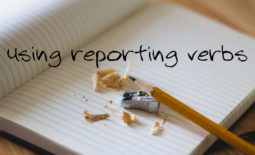you know … like … uh … okay … so … um
When I was working on my graduate degree in teaching ESL, I had to videotape myself teaching in front of my classroom of students. And, upon first viewing these recordings, I was horrified at how many times I used the word okay. It seemed like I started every single sentence with Okay, so … !
The fact is, these filler words are very, very common in English speech. If used too often, they can be quite annoying, but using them in moderation can actually make you sound quite natural.
So, while you may think you should use more formal speech on a test like TOEFL, if a native English speaker were answering these questions, you would be far more likely to hear something like this:
Okay, so the woman has a problem and, um, she needs to move to a new apartment. But, uh, this apartment doesn’t have a place to study, so, um, she could, like, study in the library or, you know, she could study on her bed. Okay, but, you know, she might fall asleep on her bed, so, um, I think maybe she should go to the library, like, at least three times a week. Uh, maybe not on the weekend, okay? But I think, like, most of the time, she, uh, could go there.
So, how much is too much and how much is in moderation? How can you use filler words naturally, but without annoying your listener?
It really helps to have someone listen to and evaluate you. Raters of TOEFL don’t see your face; they just hear your speech. Thus, your filler words are likely to be more obvious, and too many can make you sound less fluent. So have the person evaluating you listen to a recording you’ve made, or listen without looking at you face-to-face. And, if you can’t find anyone to listen to you, make a recording. Then listen to it. What filler words do you use too often or too repetitively?
And how do you cure overuse? Well, from my own example of using okay, simply realizing that I had that annoying habit was half the battle. Once I was aware of it, it was easier to catch myself “in the act” and work on reducing the times I used it.
In addition, certain filler words (also known as discourse markers) such as so, well, oh, now, okay, um, I mean, you know, like, and actually serve important functions in English speech: follow the links to the specific articles for more tips on how to incorporate them into your day-to-day speech.




